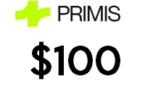Last week I asked on Twitter if anybody gets as excited for checking & savings bonuses as much as I do. There were a number of responses which made me realize that a lot of people have misconceptions about bank bonuses and how they work. I thought I’d address the most common misconceptions and try to convince you to give them a go.
Common Misconceptions
- I don’t want to waste a hard inquiry on a bank bonus, I’d prefer to sign up for a credit card instead. The vast majority of banks will not do a hard inquiry on your credit reports when you sign up for a new bank account, they will just check your ChexSystems report (which is basically the credit report of the deposit account world). We always list whether opening an account is a hard or soft pull on each post we do, there is also this dedicated page which lets you know if a bank does a hard or soft pull as well.
- I don’t want to change my payroll regularly. Most bank bonuses require you to receive a direct deposit of your paycheck or government benefit to trigger the bonus. Obviously it’s a pain changing your payroll details on a regular basis and the accounts department isn’t going to be thrilled if you’re doing this. Thankfully there are two solutions:
- The first solution is that not all bank bonuses require a direct deposit. If you only want to find bank bonuses that do not have a direct deposit requirement, go to this page and then sort by the “DD required field (click on it to sort).
- The second solution is that an ACH transfer will usually trigger this requirement. While almost all bonus pages will state it needs to be from employer or government, in reality an ACH transfer will usually cause the bonus to trigger. This isn’t always the case and sometimes some ACH transfers will count and others won’t, which is why we created this dedicated page containing data points on what does and doesn’t count as a direct deposit.
- You have to pay taxes on the bonuses. This is right, you’ll always be sent out a 1099-INT form at the end of the year and you’ll be required to pay taxes on any bank bonuses you receive. Obviously how much you pay will depend on your tax bracket, but I still find these deals worth doing and I pay a lot of tax – at the end of the day it’s all extra money in my pocket. There is an exception to this rule though, Citi doesn’t send out 1099-INT’s for their ThankYou point + American Airline offers.
Why You Should Give It A Go
Now that we’ve gone over the common misconceptions, let’s have a look at why you should give these bonuses a go:
- You can do these bonuses in your underpants. I’m a big fan of the underpants factor, anything that I can do at home in my underpants is very appealing. I’m a lazy person by nature so if I can avoid leaving my house to do manufactured spending or to earn a little extra money then I’m a happy man. Most bank bonuses can be completed without ever leaving your house. I typically do these bonuses when I’m bored watching trashy television, at least then I feel somewhat productive.
- You can fund most accounts with a credit card. Credit card sign up bonuses are great, one downside to them is that they come with a minimum spend requirement. Most bank accounts can be initially funded with a credit card which is very useful for meeting these minimum spend requirements. You can see a full list of what accounts can/can’t be funded here, along with the load limits and what has/hasn’t coded as a cash advance in the past. You can also go to the bank bonus page and sort by the amount that can be funded with a credit card.
- The bonuses can be quite high. A lot of people get turned off by the small bonuses and I agree, they suck. That being said the best bonuses are for 30,000 Miles/40,000 Points and even $400 in cold hard cash. If you just want to see the best bonuses, check out this page which we update monthly.
I made a lot of money from these bonuses last year, I’d recommend giving one a go to see how you like them. Have you tried one before? What did/didn’t you like about doing it? Has this post convinced you to give them a try? If not, why not!







Just curious, how much people make in bank bonuses every year? I made up to 6000 for myself and spouse in 2023.
If a person is a remote employee home based in one state (NJ) but works for a large international company headquartered in a different state (NY) could they qualify and sign up for regional banks in both?
The main concern that I have opening bank accounts in the same month, week or year if other banks or even the existing banks will get notified or pull the reports to see my bank activities. This would flag them as fraud or whatever they assume as risks. Can they do this? Existing banks or new banks close your acounts because they do regular check on your Chex report or EWS and decide to close and terminate your account. Any comments?
I’m relatively new to all of this, and my biggest concern/question is how to manage all of these new accounts? When can I liquidate them or close them without incurring fees? I know the answer will be different for each account; the management of it is a bit daunting. Tips appreciated!
Each account needs to be investigated separately. E.g. some don’t have any fees at all, others require a minimum balance to waive fees. Etc, etc
Also I think everyone who goes for bank bonuses on a regular basis keeps track of the accounts, bonuses, fees and ways to waive them, etc. I use a word doc, a lot of people use spreadsheets. Find whatever works for you (you’ll want it to be a document you can actually use/keep up with), but whatever format you use, there are some key details you’ll want to keep track of: -the bank and account type (I also note the last 4 digits of the account number so I don’t have to look it up all the time when I’m setting up direct deposits or transfers from an external account) -the date the account was opened and the amount of the bonus -bonus terms (what do you need to do to get the bonus, how quickly you need to have done it to receive the bonus, when the bank will pay out the bonus after successfully completing all requirements) -bonus activities (when did you complete each requirement for the bonus, and when did the bank actually pay the bonus) -any fees associated with the account and how to waive them (do you have to keep a minimum balance or receive a certain amount of direct deposit each month, and if so, what)- also make a note which method you’re using to avoid the fees while waiting for your bonus (if you have the option to pick an account type that doesn’t have any fees but is still eligible for the bonus, go for that one- one less thing to have to keep track of!) -how long the account has to stay open to avoid an early close fee or clawback of the bonus (if you can’t find something in writing, double check with the bank before you close your account to avoid an unpleasant surprise) -when you closed the account (this resets your clock with the bank on being considered a “new” customer and/or eligibility for future bonuses) **You should also always print out or otherwise save a copy of the promotion terms at the time you opened the account. That way, if there is a dispute about payout, you can refer to it and argue your case. **There are also a couple of things that are nice to include in your tracking if you think of it (these will help you for future bonuses with that same bank)- these are more advanced/I wish I’d known to keep track of them when I first started out with bonuses: -what activities triggered the bonus and/or how were things coded by the bank (for example, what does a “real”/payroll direct deposit look like in their system vs an ACH transfer from an external account- if the latter worked, what did that code as and which bank did you use) -what terms did the bank set for your current bonus regarding eligibility (how recently can you have closed an account with them and be considered a “new” customer for promotion purposes, how frequently… Read more »
Not sure where to post this, but does anyone know the trigger amount that notifies the Chase fraud department? I’ve had to deal with them for both P1 and P2 in the last week. One was a $755 transfer the other was $1005. I’m thinking I need to send a smaller trial deposit or to initially.
Apologize if this has already been suggested, but if bank account bonuses count as taxable income, they might be an excellent way to fund a traditional IRA. The tax deferral would allow you to kick the tax hit down the road, and allow you to fund your retirement on somebody else’s dime…
Doesn’t it have to be W-2 income to fund an IRA? These bonuses would be 1099 income.
I’ve gotten the Citi bank bonus and boy do they ever make you pay! I asked about the 1099-INT, right after they told me no we don’t send – yep, got one that had to be added to my taxable income. You will also notice most of these bonuses state payment will be received ‘…up to 90 days after requirements are met…and your accounts must be open.’ Citi will not pay until at least 90 days have passed and requirements met and you’ve complained non-stop to their executive office. As I said, Citi really gets their pound of flesh out of you for the bonus. Be ready.
I’ve got news for you. Whether or not the bank reports the bonus, YOU are still required to report it on your income tax return!
Also, even though banks are not required to report interest under $10, YOU are still required to include ALL taxable interest in your gross income, whether or not it was reported on a 1099!
As for your claim that “Citi won’t pay until …,” Citi paid my $500 bonus on 1/16/2020, just 47 days after I met the requirements!
Citi also paid me a $500 bonus on 3/13/2019, just 67 days after I met the requirements for that bonus. Citi sent me 1099-INT this month that includes that $500 bonus.
So I have to wonder what’s your problem.
One other question that commonly gets asked is in relation to this is: Why? Why would so many different banks give out money so easily?
While there is no written answer available for that anywhere, we all guess that it is to drum up the numbers and please the share holders that rules are lax and those that exist are also not enforced most times.
I think banks know what they’re doing. Some percentage will convert to profitable customer relationships. You don’t have to make money on every account to make money overall.
Hey, Will. I as well have made a bunch of money off of bank account bonuses for the last couple of years. There is one point you’ve never addressed (to my knowledge, and I read pretty much everything here) on the site- the fact that if you’d otherwise be eligible for an Earned Income Credit, you MUST stay under $3,450 or you’ll lose it, and the EIC can be quite substantial. Because a lot of readers of this site are lower income who otherwise may not be getting unearned income, they may not think about this, and it can dramatically affect people’s decision making when it comes to bonuses. If anyone thinks that $3,450 is ludicrous, you haven’t been in the game long enough
yeah I’d love to have a registered accountant talk about things like this but there are certain liability issues involved and it’s not something i’m confident enough to talk about in any great depth
Hmmm.. I’ll email you
Looking forward to it.
Now this is interesting. Say my husband (only in speaking, not on paper, it’s just not our thing and decades happy so no lashings, please) is a “homemaker”. He files no taxes because he has no actual income. If he did these various bonuses up to no higher than the 3xxx amount limit set by the irs, he would then in turn hypothetically qualify for a tax refund via the EIC (of course this is just absolutely straight forward hypothetical, not accounting any other variables)? Meaning he earned income for that year, albeit via “investment income” (1099). I know, I know. No tax advice. I am just looking for some casual conversation, but rather toying with an imaginary scenario, and maybe would consider speaking to a tax consultant further if it seems worth the time if this could be a thing. If this truly is inappropriate, feel free to remove. Thanks!
The money earned through bank account bonuses are generally reported on a 1099-INT, which is unearned income. Not only does that not help qualify you towards the minimum earned income level required to be ELIGIBLE for the EIC, it in fact will cause you to be INELIGIBLE for it if you earn more than (3,600 in 2019) in unearned income.
Glad to be of service 🙂
Anyone doing EITC needs to watch this like a hawk. If you go $1 over the “investment income” (cap gains, interest dividends) limit for that tax year then you are disqualified from EITC.
FWIW anything on 1099-MISC does not count against you.
Form 1099-MISC can also be used to report compensation paid to a person who is not an employee of the payor. The person receiving non-employee compensation reported on a 1099-MISC is responsible for paying the associated payroll taxes that a self-employed person is required to pay.
Sometimes brokerage bonuses show up on a 1099-Misc. These obviously aren’t subject to self employment tax.
Correct, you need to be super careful about this. This part of our tax law is very much regressive. You can lose many thousands of dollars for one foolish bank account bonus.
About 1099-MISCs, there’s truth to this but that’s not a hard rule, there are multiple 1099-MISC forms and some (such as rents) can count against you.
One thing to note is you can use passive losses to offset gains, so if you accidentally went over the limit there are definitely ways to correct it, but you need to take care of it that year. Consult a CPA.
Disclaimer: Don’t consider this tax or legal advice. Always consult a CPA or attorney.
EIC is Earned Income Credit. “Earned income” means income from employment activities. Interest, dividends, investment income and bank bonuses are obviously not income from employment activities.
The good news is, for the 2021 tax year the limit has been increased from $3,650 to $10,000 and will be adjusted for inflation for 2022 and beyond.
https://www.taxpayeradvocate.irs.gov/get-help/credits/claiming-the-eitc/
Link doesn’t work…
Yes, it is. It’s no longer such a concern 🙂
😌 thanks.
I would like to say that the old Fidelity brokerage bonuses for airline miles also didn’t 1099 me either. This is the same as the Citi checking point bonuses.
I unfortunately haven’t been targeted for points yet. I have a Citi AA business card, but not personal.